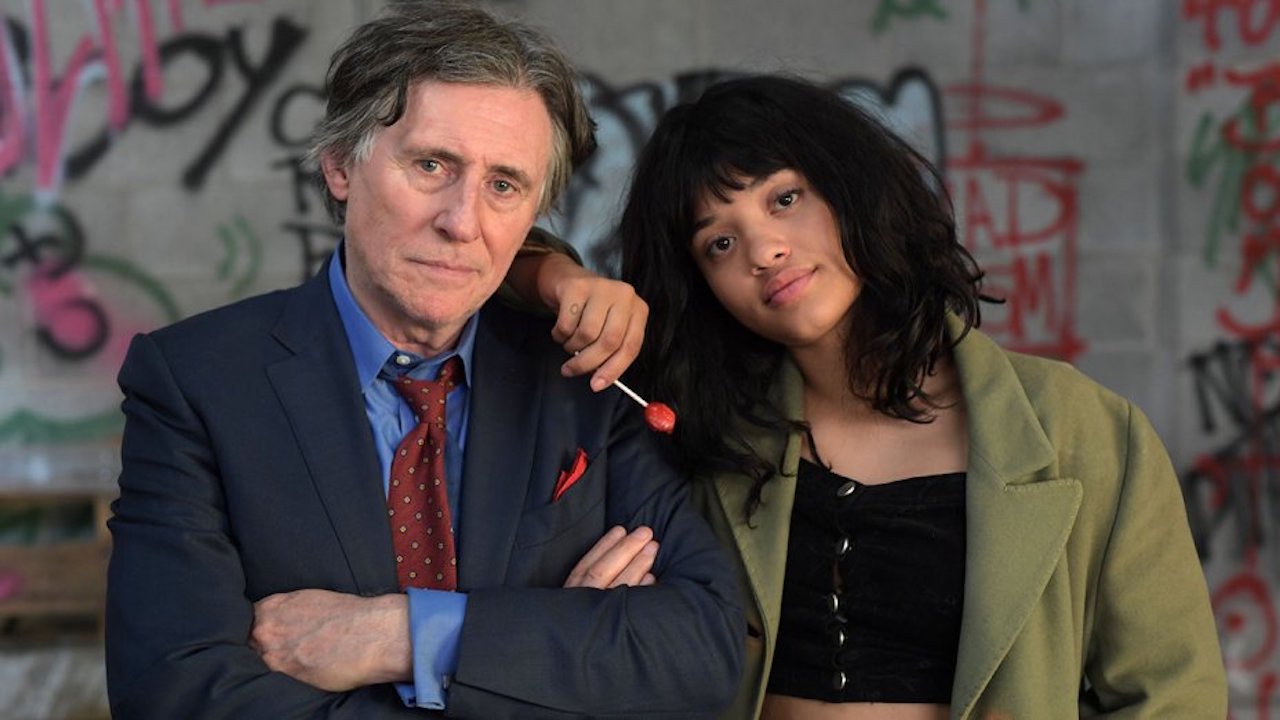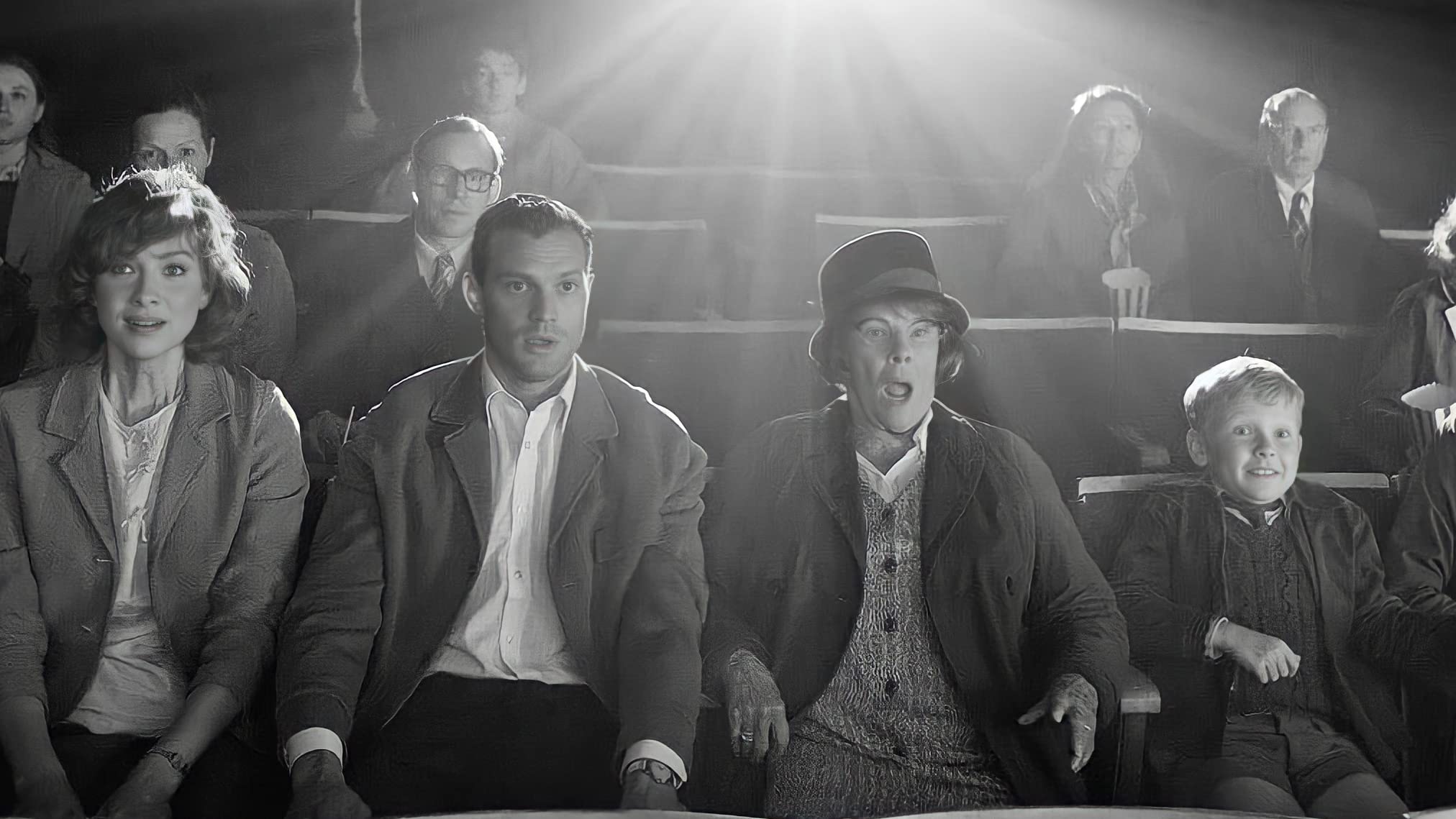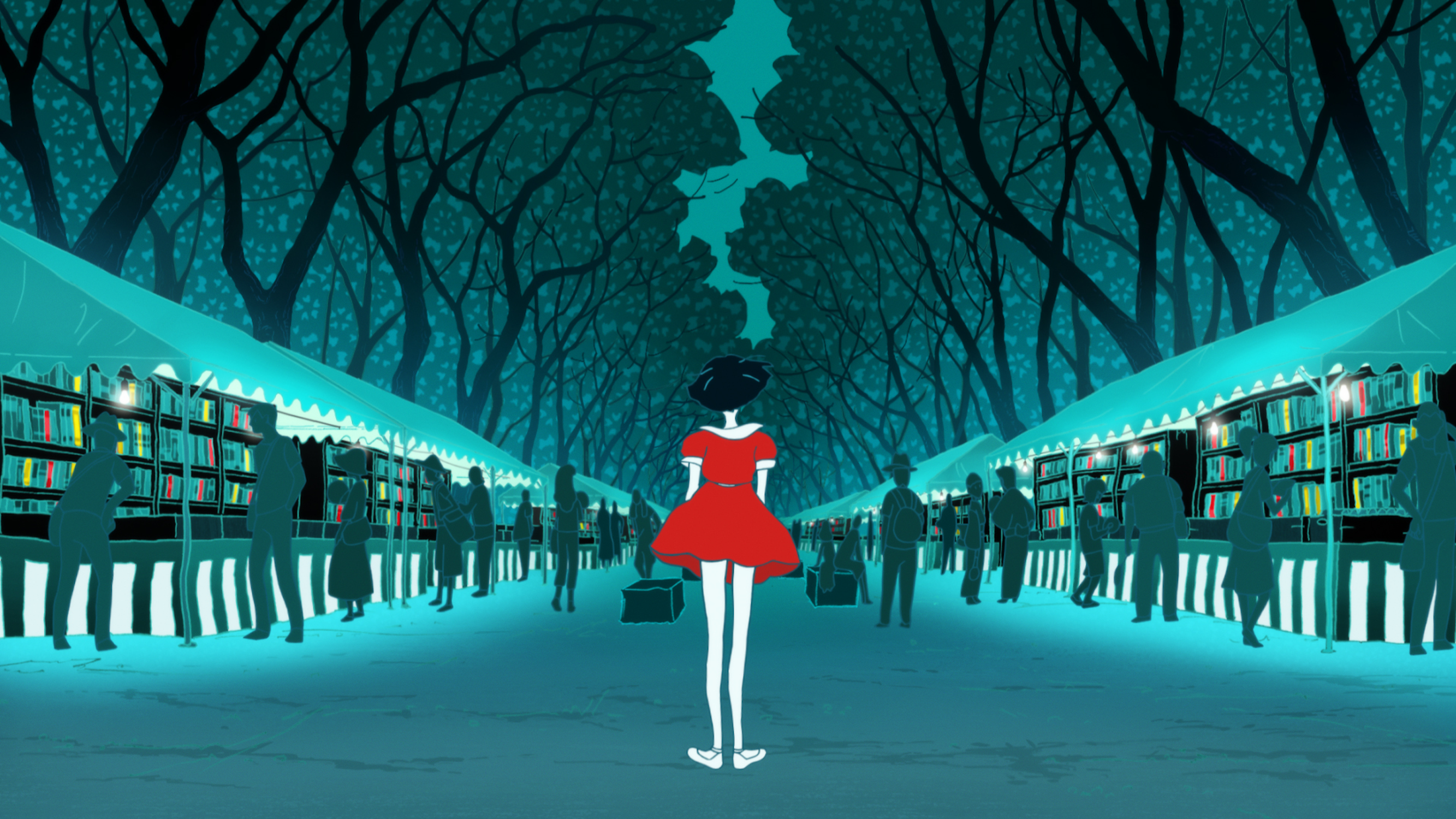Title: The Zone of Interest
MPA Rating: PG-13
Director: Jonathan Glazer
Starring: Christian Friedel, Sandra Hüller, Johann Karthaus
Runtime: 1 hr 45 mins
What is it About: The commandant of Auschwitz, Rudolf Höss, and his wife, Hedwig, strive to build a dream life for their family in a house and garden next to the camp.
What We think: I cannot think of another film from 2023 that left me emotionally detached and incredibly unfulfilled in the most coldly disturbing way possible. When I say ‘unfulfilled’, I don’t mean that as a criticism. Throughout The Zone of Interest, I didn’t get any emotional satisfaction from watching these people, and I believe that was the point. I’m not meant to connect with the Höss family, but rather to study them, to see how they would live their day-to-day life while being aware of the hideous acts happening literally next door. What’s more unsettling is just how tranquil the family seems to be. They swim in the lake, throw birthday parties, and have friendly gatherings in sunny afternoons. The gunshots, screams, and the billowing smoke rising from the chimneys are just normal to them. The atrocities committed in the film aren’t shown, but we do hear them. Much of the sounds of the victims’ suffering are muffled with the sounds of nature and the partying and chatting from the family in the backyard. The film refuses to hold your hand and makes you to read very hard into the environment these people are surrounded by. The sound in this film acts as its own character, as does the camp itself, which is shown in nearly every frame of the film. In an interview with the Guardian, the writer-director, Jonathan Glazer, described The Zone of Interest as two movies: the one you see and the other one you hear.
This is evident in a chilling static shot where the family is engaged in a party in their backyard and to the left of the frame is the camp. This exact shot essentially sums up the movie in a nutshell in that, we the audience, are complicit in watching this family live out their lives while the mass-murder is happening on the other side of the wall. In the hands of a lesser filmmaker, the shot would’ve been undercut by music for dramatic effect. Instead, Glazer lets the imagery speak for itself. In regards to the music, much of the film contains no score, but when it hits, Mica Levi’s unnervingly droning score puts you in a trance. The movie doesn’t follow the conventions of a traditonal narrative and I don’t think it’s a bad thing. It’s less of a narrative and more of a slice-of-life snapshot into the lives of this family of characters. In fact, I hesitate to call them “characters” as each of them acts like a real person, and they’re brought to life by phenomenally naturalistic performances all around – this is thanks to Glazer’s insistence on having hidden cameras to capture the natural reactions from the actors. Christian Fridel injects cold sternness into his portrayal of this family man who treats his job as his life and views the family as nothing more than work he attends to when he has the time. The film gives us the impression that he cares for his wife and children, but he doesn’t express his feelings in a way you expect a typical father would. He delivers his lines in a very clinical manner and there’s never a scene where we see him process any other kind of emotion. The brilliant moments of subtlety in his performance are the times where he doesn’t utter a word and we’re left to wonder what exactly he is thinking about.
Sandra Hüller is equally a commanding presence as the housewife who tries to make her home look and feel like a paradise as much as possible. She’ll do anything to preserve the life she’s made for herself and her children, and even threatens to throw out her husband, to which both of them agree to a compromise. In a weird way, Hedwig is somewhat slightly worse than her significant other. Whereas Rudolf internalizes his feelings from others, Hedwig very proudly expresses them. Earlier in the film, we see her trying on a fur coat, which we soon find out was taken from a Jewish prisoner. She scoffs at the suffering of the Jews with no remorse and even proclaims herself as “the Queen of Auschwitz”. This role is certainly a far cry from her empathetic role as a mother accused of murdering her husband in the immaculately crafted thriller, Anatomy of A Fall. Watching these two performances in the same year definitely showcases Hüller as a talent to be reckoned with. The film makes the bold choice of framing the family from a distance, and never letting the viewers get a close up of them. Of course, the only time we ever get a close up is when we’re viewing the torture of the Jewish prisoners from Rudolf’s perspective. The shot holds on Rudolf’s emotionless facial expression as the terrifying sounds of the Jews’ suffering nearly deafens your ears. The movie is visually immaculate in its restraint; the majority of the scenes are filmed in long, unbroken takes, with occasional panning and tracking shots. The camera movements are smooth and precise. The editing is clinically methodical, and the film cuts at just the right time without feeling jarring. Each scene looks clean and natural and the production design is very lived in, and at times, it feels more like you’re watching a documentary (Kudos to DP Łukasz Żal for blending the naturalistic beauty with the nightmarish undertones).
Another aspect that caught me off guard is how awkwardly funny the movie can be at times to the point where I felt conflicted if I was supposed to really laugh at certain moments. One such moment is when Rudolf and Hedwig are sharing an intimate moment in their bedroom while the sounds from the camp serve as pauses in their conversation. Apparently, the novel the movie is loosely based on has elements of dark comedy interwoven in the narrative. I have yet to read the novel but let’s just say that scene in particular serves as one of the very few times we get a humanistic moment with this family, as throughout the rest of the film, there wasn’t a moment where I was smiling with them. I kept longing for the film to give me a sense of release, but I never received that satisfaction. The film essentially ends without a desired resolution to see the family, particularly with Rudolf Höss, get their comeuppance for their actions. However, the film pulls an unexpected maneuver toward the very end. I won’t give it away, but it left me speechless and shaken to my core. This quietly devastating sequence deftly makes you question at what cost does acts of evil gain in this world and it also shows that as the world continues to evolve in the right direction, the hideous and unnecessarily tragic events of the past are never forgotten, but preserved. The film is strangely poetic in a way, in that the film opens and closes on a black screen accompanied by Mica Levi’s haunting score. Much of the horror takes place during the day, and ironically, there’s two nighttime scenes, in particular, that show any signs of light shining through the film’s oppressively dark world. To clarify, the film includes a small subplot involving a pre-teen Polish girl leaving apples at the concentration camp for the other prisoners to find. These scenes were filmed with thermal imaging cameras to make her exploits more visible. While I was watching the film, I initially didn’t know what to make of these scenes. To me, these scenes played out as surrealistic experimental dreamscapes. I can’t fault others for thinking this way at first glance, as Glazer is no stranger to employing dark surrealistic imagery in his works. However, the more I sat on these sequences as well as reading other perspectives on the film, I realized that these small moments were acts of rebellion to an evil force that showed no signs of going away. It’s even more remarkable to find out that the young girl is actually based on a real person named Alexandria who was a Polish rebel at the age of twelve. As brief as these scenes are, the film successfully manages to find the light in a world that seemed incredibly hopeless. In a way, she’s the hero of this tale, which makes the film more impactful as one heroic act contrasts with the brutality inflicted by the Nazis. As much as the Hoss family is bathed in the sunlight, not an ounce of genuine humanity shines through them, which makes the nighttime scenes with them feel colder and more unsettling. As the film reaches its end, the light is drained from these people as the scenes literally get darker. The final scene sees literal darkness overtaking the frame as each cut masks Rudolf in the dark. If that’s not an intentionally unfitting, but necessary end to a monster, then I don’t know what is.
Our Grade: A+. The Zone of Interest sits next to Under The Skin as one of Glazer’s chilling masterpieces. The film is a brilliantly crafted nightmare for our current time, and is a reminder that evil can hide in plain sight, and just how we’re often guilty overlooking the ordinary, because in many ways, the Höss family are just regular people like us. Without knowing the context of where the family lives or what the husband does, you would never question the elephant in the room. It’s another reminder of how cowardly implicit we are if we allow hideous acts of like this to carry out. The film couldn’t have come out at a better time in the increasingly political and divisive year of 2023. The film is a warning more than anything else, and is the most important film we need right now. This film is unlike anything you’ve ever seen, and like the best films, it’s one you’re going to remember for a very long time.


